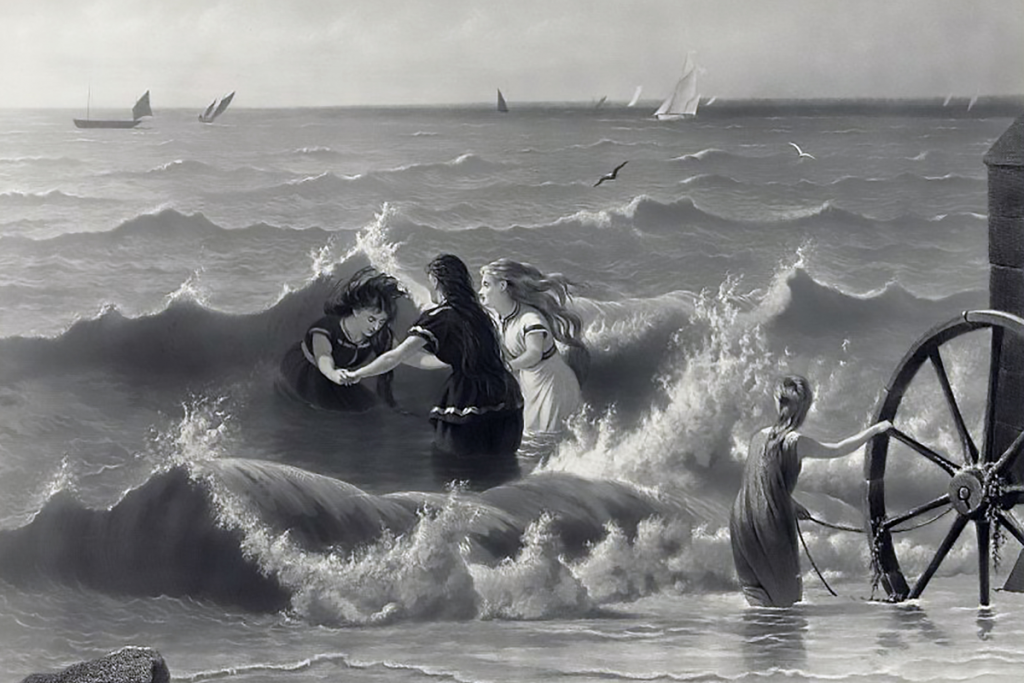“A little sea bathing would set me up forever.”
For World Mental Health Day we’re looking back at Europe’s historical connection to seaside therapies and what we’re learning today.
Sea-based therapies known as thalassotherapy date back centuries in Europe. Seaside visits became popular in the Georgian and Victorian times when physicians recommended sea bathing to treat symptoms of depression, illness and disease. Visitors undressed in wooden carts that rolled into the seawater. This all inspired Jane Austen’s character Mrs Bennet to say “A little sea-bathing would set me up forever.”
In 1971, England’s first sea bathing hospital opened in Kent to treat London’s poor so they too could benefit from seawater and fresh air.

Ladies play in the sea next to a sea bathing cart
Europe’s coastal connection today
Today, 194 of Europe’s 800 cities are coastal and more than half of Europe’s population live within 50km of the coast. But our seas and oceans are under threat from pollution, overexploitation and climate change.
BlueHealth researchers have been collaborating with local governments, businesses, urban planners and the general public across Europe by hosting scenario workshops. The discussions have created a vision of the health and environmental pressures our cities could face in 2040 and beyond. Read more about this project.
What has BlueHealth discovered so far?
Using different types of data collection, scientific evaluations, and the latest technologies, researchers are piecing together a spectrum of evidence that can explain how health and wellbeing are linked to urban blue spaces like the coast:
- An international review found that exposure to outdoor blue spaces, including the sea, is especially beneficial to indicators of mental health and well-being, as well as encouraging exercise.
- A survey following the riverside regeneration project along the Besòs River in Barcelona showed that nearly 6,000 adults use the park each day. The results suggest that visitors’ increased physical activity could prevent up to seven deaths and save 23 million euros in public health spending each year.
- Benefits of nature-based virtual reality experiences could improve wellbeing for people such as elderly care patients who have limited access. This technology is being tested in Sweden, Estonia and the UK to advance this emerging field.
- More than 270 million visits are made to English coastlines each year, with walking being the most popular activity.
- Living close to the sea has been linked to better mental health in England’s poorest urban communities.
The future for Europe’s coastal cities
Today 25% of Europe’s population suffer from depression or anxiety each year (WHO) whilst our seas and oceans also continue to suffer. Producing more evidence which links the coast to improved health and wellbeing, could help us protect these fragile environments as well as the mental health of Europe’s future generations to come.

Sunset water sports in Tallinn, Estonia


